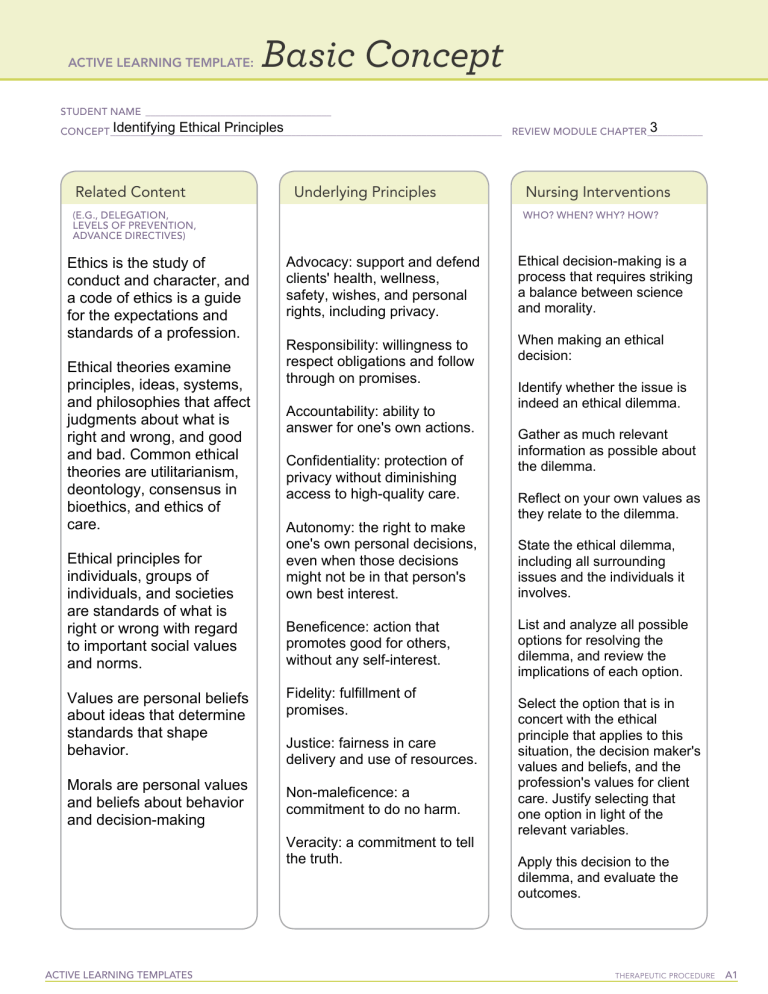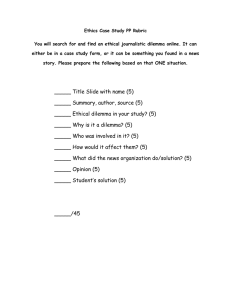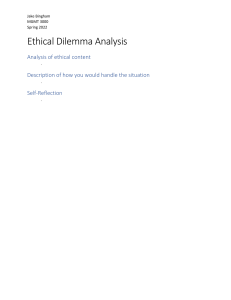
ACTIVE LEARNING TEMPLATE: Basic Concept STUDENT NAME______________________________________ Ethical Principles CONCEPT__Identifying _____________________________________________________________________________ Related Content Underlying Principles (E.G., DELEGATION, LEVELS OF PREVENTION, ADVANCE DIRECTIVES) Ethics is the study of conduct and character, and a code of ethics is a guide for the expectations and standards of a profession. Ethical theories examine principles, ideas, systems, and philosophies that affect judgments about what is right and wrong, and good and bad. Common ethical theories are utilitarianism, deontology, consensus in bioethics, and ethics of care. Ethical principles for individuals, groups of individuals, and societies are standards of what is right or wrong with regard to important social values and norms. Values are personal beliefs about ideas that determine standards that shape behavior. Morals are personal values and beliefs about behavior and decision-making Nursing Interventions WHO? WHEN? WHY? HOW? Advocacy: support and defend clients' health, wellness, safety, wishes, and personal rights, including privacy. Ethical decision-making is a process that requires striking a balance between science and morality. Responsibility: willingness to respect obligations and follow through on promises. When making an ethical decision: Accountability: ability to answer for one's own actions. Confidentiality: protection of privacy without diminishing access to high-quality care. Autonomy: the right to make one's own personal decisions, even when those decisions might not be in that person's own best interest. Beneficence: action that promotes good for others, without any self-interest. Fidelity: fulfillment of promises. Justice: fairness in care delivery and use of resources. Non-maleficence: a commitment to do no harm. Veracity: a commitment to tell the truth. ACTIVE LEARNING TEMPLATES REVIEW MODULE CHAPTER__3 __________ Identify whether the issue is indeed an ethical dilemma. Gather as much relevant information as possible about the dilemma. Reflect on your own values as they relate to the dilemma. State the ethical dilemma, including all surrounding issues and the individuals it involves. List and analyze all possible options for resolving the dilemma, and review the implications of each option. Select the option that is in concert with the ethical principle that applies to this situation, the decision maker's values and beliefs, and the profession's values for client care. Justify selecting that one option in light of the relevant variables. Apply this decision to the dilemma, and evaluate the outcomes. Therapeutic Procedure A1


